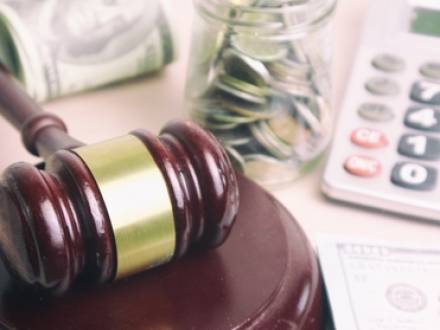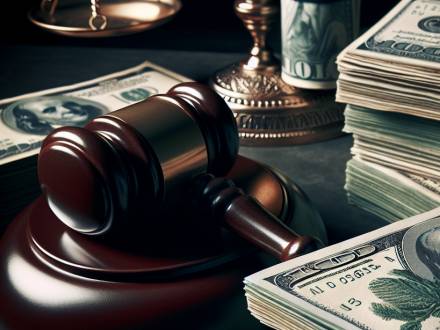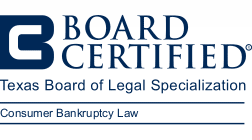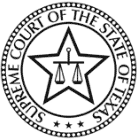Recent Blog Posts
What Happens if You Violate Your Mortgage Repayment Terms?
 Homeownership is a significant milestone, but it comes with substantial responsibilities. One of the most vital obligations is adhering to your mortgage repayment terms. Violating these terms can lead to serious consequences that may jeopardize your homeownership status. A Texas foreclosure prevention lawyer can help you understand what happens when you breach your mortgage agreement and provide insights on how to get through this tricky situation.
Homeownership is a significant milestone, but it comes with substantial responsibilities. One of the most vital obligations is adhering to your mortgage repayment terms. Violating these terms can lead to serious consequences that may jeopardize your homeownership status. A Texas foreclosure prevention lawyer can help you understand what happens when you breach your mortgage agreement and provide insights on how to get through this tricky situation.
What You Should Know About Mortgage Violations
A mortgage violation occurs when you fail to meet the terms outlined in your mortgage agreement. Common violations include missing payments or consistently making late payments, failing to maintain adequate homeowners insurance, neglecting to pay property taxes, using the property for purposes not permitted by the mortgage agreement, or failing to maintain the property in good condition.
What happens to retirement accounts when filing for bankruptcy?
Financial challenges can arise unexpectedly, leading individuals to explore options like Chapter 7 bankruptcy for relief.
If you find yourself considering this route, you might be wondering about the fate of your retirement accounts.
Chapter 7 bankruptcy basics
Chapter 7 bankruptcy, often referred to as “liquidation bankruptcy,” involves the sale of non-exempt assets to settle debts. This process helps provide a fresh start for individuals overwhelmed by financial burdens.
The protection of retirement accounts
Retirement accounts are a lifeline for many individuals. They represent years of hard work and disciplined savings. The good news is that, in many cases, these accounts are not part of liquidation during Chapter 7 bankruptcy proceedings.
Qualified retirement accounts
Qualified retirement accounts, such as 401(k)s and IRAs, are typically safeguarded. These accounts enjoy protection up to a certain limit. This ensures that you can maintain a financial cushion for your post-working years.
4 signs you might need to file for bankruptcy
 Financial hardships can affect anyone for several reasons.
Financial hardships can affect anyone for several reasons.
When your debt reaches a point of overwhelming burden, it becomes important to recognize the telltale signs that bankruptcy might be the most suitable course of action.
1. Unmanageable debt
When your debt load becomes unmanageable, it can be challenging to make regular payments. If you find yourself struggling to meet monthly obligations like rent, utilities or minimum credit card payments, it is a clear indicator that your financial situation might require a reset.
2. Creditor harassment
Constant phone calls and letters from creditors can take a toll on your emotional and mental well-being. If experiencing relentless harassment from creditors demanding payment, it might be time to explore bankruptcy as a way to put an end to these aggressive tactics.
3. Legal actions
When dealing with legal actions, such as wage garnishment or lawsuits stemming from unpaid debts, turning to bankruptcy can offer legal safeguards. Initiating bankruptcy proceedings can put a stop to these actions and potentially lead to the discharge of your debts, providing you with a chance to begin anew financially.
Possible solutions following a pandemic’s impact on small businesses
As the history of the COVID-19 pandemic continues to be written, one or more chapters will cover the impact on businesses, both small and large. The tale is two-fold: companies that survived and enterprises that failed, despite billions in forgivable loans courtesy of Washington DC lawmakers.
According to the Harvard Economic Tracker, more than one-third of the small businesses numbering more than 23 million, experienced temporary or permanent closure.
A cataclysmic impact on businesses
Small businesses are organizations with less than 100 staff members. They accounted for 98 percent of all companies forced to close due to a worldwide pandemic based on data from the US Small Business Administration.
Regardless of the struggle businesses face on a daily basis, many times, bankruptcies are a business owner’s only option to get out from under.
Difficult choices
The type of bankruptcy a business owner selects comes from various factors ranging from the specific entity to the liability for debts. Also, owners have to decide to keep operations open and strategies moving forward to ensure stability and hopeful success.
What debts cannot be erased in a Texas bankruptcy?
Filing for bankruptcy in Texas can offer a fresh financial start for those struggling with overwhelming debt.
While bankruptcy can discharge many types of debt, understanding that not all debts qualify for discharge is essential.
Debts bankruptcy does not discharge
Bankruptcy proceedings, regardless of whether you file for Chapter 7 or Chapter 13 bankruptcy, do not discharge certain types of debts. For example, bankruptcy does not discharge student loans in most cases. However, if you can prove that repaying your student loans would cause you undue hardship, you may be eligible for a discharge. To do this, you must demonstrate that you have made a good-faith effort to repay the loans and that your financial situation is unlikely to improve in the future.
Furthermore, bankruptcy generally does not discharge some tax debts, such as recent income tax debts, payroll taxes and tax penalties. In certain circumstances, bankruptcy may discharge older income tax debts if you meet some specific requirements, such as the debt being at least three years old and the tax return filed at least two years before filing for bankruptcy.
Who can you contact about creditor harassment?
People who owe someone money may begin to receive phone calls and other communications from the person, company or third party seeking their money. However, sometimes collectors cross the line into harassment, which may include communications containing threats and incessant calls very early in the morning or late at night. Fortunately, there are places where people can turn if they experience harassment by a collector.
If you believe you are the target of creditor harassment in Texas, what are some of the entities that you can contact regarding the matter?
The Federal Trade Commission
The Federal Trade Commission has a rule in place that creditors cannot exhibit abusive behavior in the process of trying to collect a debt. If a creditor is harassing you, filing a complaint with the FTC is a wise first step to take. In addition to harassment, debt collectors are also forbidden from lying in order to intimidate a debtor.
The Consumer Financial Protection Bureau
How to rebuild credit after bankruptcy
When you file for bankruptcy, it will remain on your credit report for seven to 10 years.
While filing for bankruptcy does damage your credit, there are ways to rebuild after bankruptcy.
Get a secured credit card
With a history of bankruptcy, you become a risk to credit card companies. They do not want to issue a line of credit to people with poor credit scores or a history of non-payment. A secured credit card is an option because it requires a cash deposit from you. Your borrow limit is typically the amount you deposited. This is less risky for the credit company because if you do not pay, they keep your deposit.
Make consistent payments
To help improve your credit score, show that you are a responsible borrower by consistently making payments on time. In addition to making consistent payments for any credit cards or loans you have, also make consistent payments to utility companies.
Avoid these mistakes before filing for Chapter 7
Chapter 7 bankruptcy is helpful if you cannot get out of debt. However, it is not a foolproof solution. There are many mistakes you need to avoid if you decide Chapter 7 is right for you.
According to the United States Courts, 335,886 people filed for Chapter 7 in 2021. If you believe Chapter 7 is the right choice, avoid the mistakes described below.
Do not transfer assets
You cannot change the title on your assets before filing for bankruptcy. Doing so puts you in danger of bankruptcy fraud. Before you file, do not change the title on your car, bank accounts, home or business venture. Chapter 7 does not necessarily mean you will lose all your assets, and committing fraud will not help your situation.
Do not use credit cards
Stop using your credit cards before filing for Chapter 7. If you can, use debit cards and cash only. Creditors might object to a debt discharge if they notice you bought a new watch before filing. You can use a credit card to purchase essential items.
Answers for 3 frequently-asked Chapter 13 bankruptcy questions
There are a lot of misconceptions about bankruptcy in general. Chapter 13 Bankruptcy, which is a more complex and involved process than Chapter 7 bankruptcy, confuses many people.
Some people assume that if they don’t qualify for a Chapter 7 bankruptcy based on the means test, then it isn’t worth pursuing a Chapter 13 filing. However, Chapter 13 bankruptcy has helped countless Americans regain control over their finances and address insurmountable levels of personal debt.
If you have ever wondered about the answers to any of the three questions below, learning the answers might change your perspective on Chapter 13 bankruptcy.
Will I lose any of my property in a Chapter 13 filing?
The liquidation of personal assets is not typically a requirement in a Chapter 13 filing. Rather than needing to cash out the equity in your home or sell off your valuable possessions to repay creditors, you have to create a repayment plan. Chapter 13 bankruptcy is a great solution for people with a lot of debt but also a lot of property that would be at risk in a Chapter 7 filing.
The impact of COVID on homeowners
The impact of the COVID-19 pandemic is still being felt as variants breach the border of the United States. The near two-year crisis continues to impact not only physical health but also financial stability. Thankfully proactive measures were put into place early on to help those who lost their jobs and struggled to make ends meet.
For homeowners in programs to stave off foreclosure actions, the bill may be due sooner than expected.
Promising statistics
The third quarter of 2021 saw new foreclosures increasing by nearly a third from the second quarter. When looking at the same time last year, that number represents a 67 percent increase. Nationally, Texas ranks second with 2,827. Even with that surge, lenders continued to pursue what is termed “aggressive modifications,” a strategy that should keep foreclosure numbers relatively low and allow people to remain in their homes.











